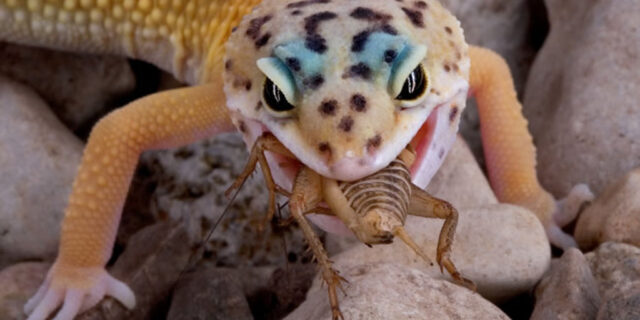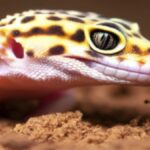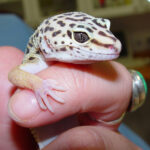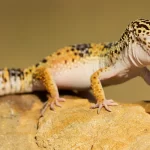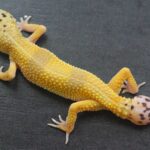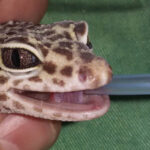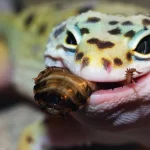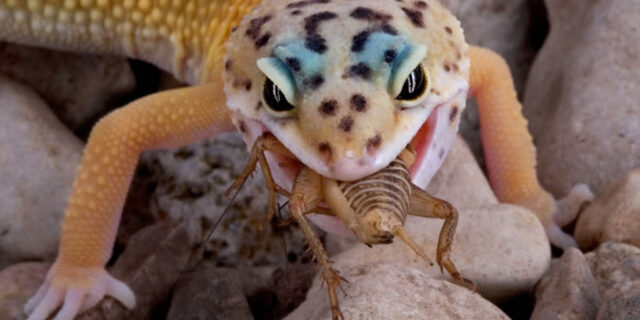
This article is tagged to be informative to veterinarians too. The information is not a substitute for advice from a veterinarian.
This Leopard gecko feeding behaviour post will give you a little more information on what to expect, what is normal and what you should worry about when it comes to feeding times.
Introduction to Leopard gecko eating behaviour
Leopard geckos are insect-eating or insectivorous lizards. In nature, they eat a variety of live foods including, insects, spiders, worms and a variety of small mammals. They are also nocturnal, meaning they spend most of their active time at night.
To stimulate normal Leopard gecko feeding behaviour, this is what keepers should aim for – feeding live insects, mainly at night. Leopard geckos are also considered hunters, which prey on moving or wiggling foodstuffs.
Baby and adult Leopard geckos might have different eating habits. Babies are often very cautions when it comes to living food items, but soon start to catch up after days or weeks not to disappoint their juvenile and adult counterparts. Although it is not always expected to eat a lot, baby Leopard geckos should at least always be interested in moving insects.
Newly acquired Leopard geckos might also be shy when it comes to eating in front of an audience. Remember that everything might be a bit overwhelming, so give new geckos some privacy during the adaption stages. Also make sure that there is adequate hiding areas for shy Leopard geckos.
In the correct setup, healthy Leopard geckos should eat quite frequently, at least every day. Note that normal shedding can sometimes cause a significant disruption in feeding patterns.

